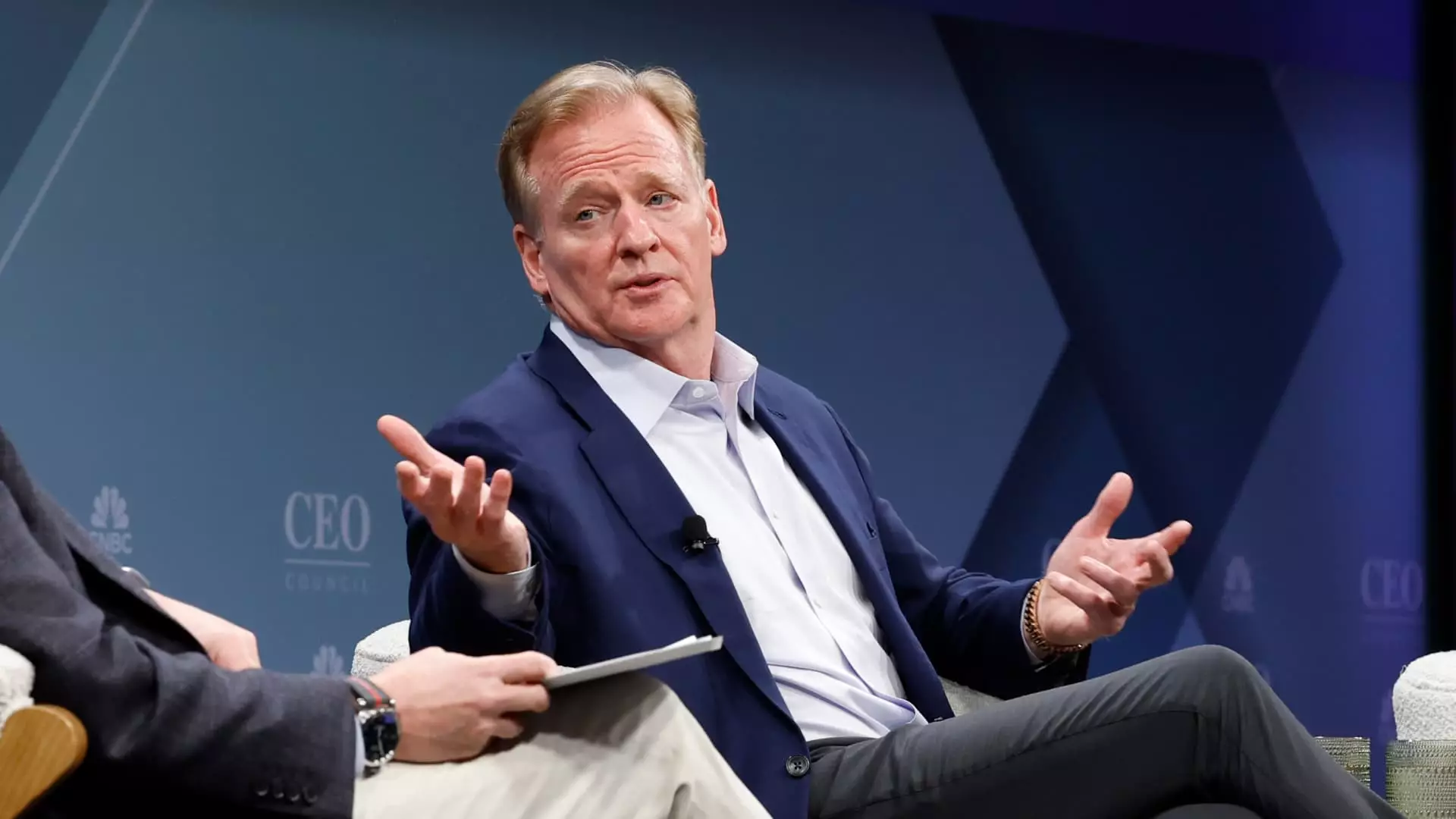In an unprecedented declaration, NFL Commissioner Roger Goodell announced the league’s intent to expand its international footprint significantly. Within five years, the NFL could potentially host up to 16 regular-season games abroad. This ambitious plan represents a radical shift in the league’s strategy and opens the door to an expansive global market craving American football. Goodell posits that the league’s existing base of over 200 million fans in the United States signals an overwhelming appetite for the sport beyond its domestic boundaries. While the idea of international games may seem enticing, this expansion could either signify the NFL’s ultimate triumph or a gamble with potentially expensive repercussions.
The Financial Landscape: Sports Tourism and Revenue Drivers
Goodell’s optimistic outlook coincides with Marriott CEO Anthony Capuano’s insights into the lucrative world of sports tourism, which rakes in over $50 billion annually. The NFL’s collaboration with Marriott as their official hotel partner bolsters the idea that their international games could become significant revenue streams. While both individuals highlight the economic potential, skeptics might argue that this focus on short-term gains could overlook essential elements, like understanding the cultural nuances of different markets or the risk of over-saturating the football brand. Such actions could ultimately tarnish the novelty and exclusivity of the experience for die-hard fans, leading to diminishing returns.
Private Equity: A Double-Edged Sword
One of the most noteworthy components of Goodell’s discourse was the emergence of private equity investments within the NFL. With a recent green light for up to 10% stakes in teams, the influx of private capital could provide additional liquidity essential for team operations. Goodell notes that this financial support is a natural progression for franchises eager to capitalize on rising valuations, which now average $6.49 billion. While this financial evolution may seem pragmatic, it raises critical questions about the long-term health and identity of the league. As private equity firms insidiously deepen their roots into team ownership, there’s a looming risk that the integrity of the game could be overshadowed by profit-driven motives. Fans might soon find themselves wrestling with the idea that decisions, once made with the sport’s best interest in mind, could now be swayed by cold, calculated financial reports.
Surging Valuations Amidst Economic Uncertainty
In an astute observation, Goodell commented on the perplexing rise in team valuations despite the broader economic climate, characterized by inflation and shifting consumer sentiment. The NFL’s record revenue of $23 billion last year is indicative of the league’s robust financial structure. While many industries have struggled, the NFL appears to thrive—opening a Pandora’s box of questions regarding the sustainability of this success. Are fans simply opening their wallets wider, or are they choosing to engage with the sport out of a sense of nostalgia and patriotism? This striking disparity juxtaposes the stark reality of many American households grappling with economic challenges, revealing a potential disconnect between the league’s financial prowess and fans’ experiences.
A Future of Risk and Reward
In charting a course toward international dominance, the NFL faces a challenging landscape filled with risks and rewards. Although the idea of establishing the league globally is undeniably forward-thinking, it cannot be neglected that the sport thrives on the singular bond shared between local fans and their home teams. The tales of loyalty and regional pride might quickly dissipate in an effort to chase the almighty dollar. As teams brace themselves for the influx of private equity and the implementation of international games, one must question whether this new direction aligns with the league’s traditional values or if it strays too far into the wild realm of globalization.
Goodell’s bold declarations paint a daring picture of the NFL’s ambitions, but the pathway is fraught with high stakes. Only time will answer whether this strategy yields a flourishing international community or undermines the sport’s essence in pursuit of expansion. The ensuing years will likely prove pivotal not just for the NFL, but for the very identity of American football as it decides whether to soar to new heights, or retract into its domestic shell.

